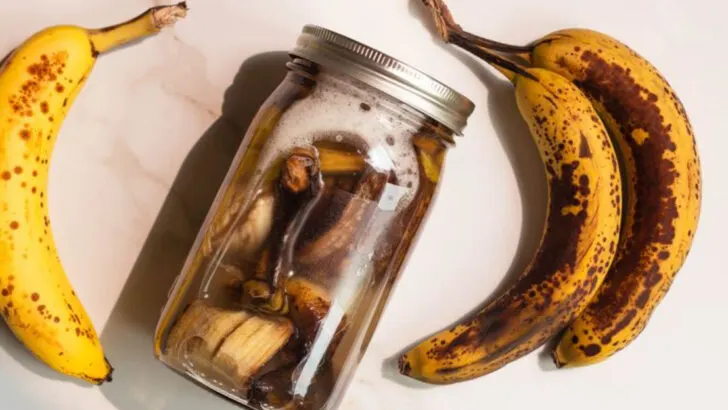Sometimes, plants need a little extra help and store-bought solutions don’t always feel like the right fit. If you’ve ever looked at your garden and thought, “They could use a boost,” but didn’t want to reach for chemicals, you’re not alone. The good news? You probably have what you need already sitting in your kitchen or compost pile.
From banana peels to brewed chamomile, simple ingredients can do a lot when combined with a bit of know-how. These DIY tonics aren’t magic potions, but they do offer real benefits—from strengthening roots to deterring pests, without relying on anything synthetic. Here are 14 natural recipes that can give your plants the support they need to grow strong and steady.
Banana Peel Fertilizer
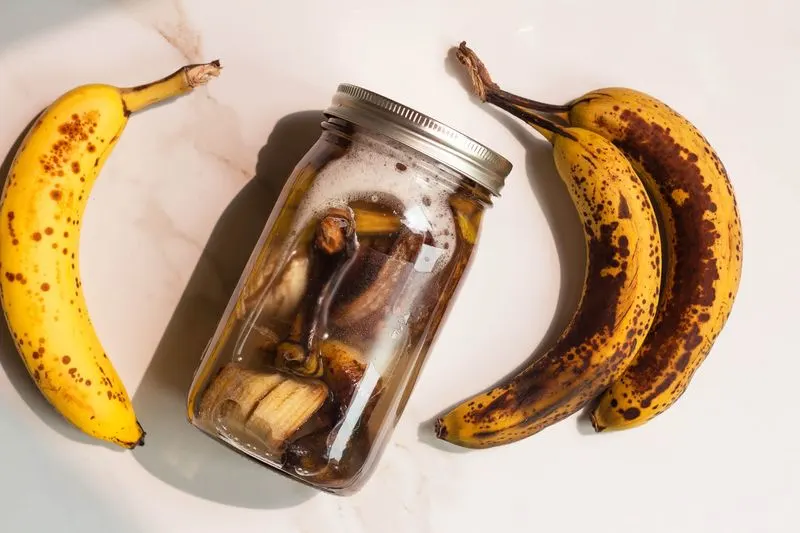
Transform banana peels into a potassium-rich tonic for your plants. Start by cutting peels into small pieces.
Bury them around the base of your plants or soak them in water to create a nutrient-rich tea. This natural remedy enhances root development and strengthens stems. Did you know? Banana peels decompose quickly, enriching soil with essential minerals.
Regular application results in lush foliage and vibrant blooms. Ideal for roses and flowering plants, this simple solution is both cost-effective and eco-friendly. Enhance your garden’s vitality with this easy DIY tonic!
Eggshell Calcium Booster

Eggshells are a natural source of calcium, vital for plant growth. Crush clean eggshells into a fine powder.
Sprinkle around your plants or mix with soil to prevent blossom end rot in tomatoes and peppers. The calcium strengthens cell walls, promoting robust growth.
Did you know? Eggshells take time to break down, providing a slow-release fertilizer. This ensures a steady supply of nutrients, enhancing your garden’s productivity. Embrace this sustainable practice and contribute to reduced waste while boosting your plants’ health.
Coffee Grounds Soil Enhancer
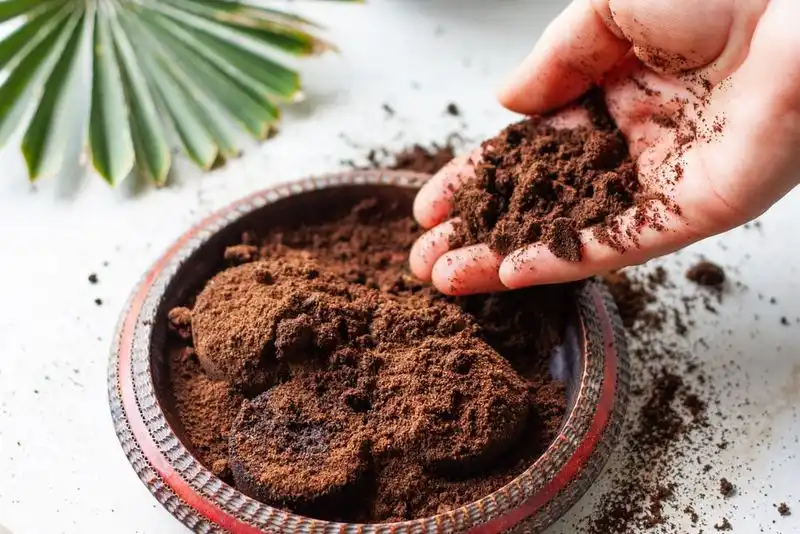
Rejuvenate your garden with used coffee grounds. Spread them thinly over soil to improve drainage, water retention, and aeration.
Rich in nitrogen, coffee grounds are perfect for acid-loving plants like blueberries and azaleas. Their gritty texture deters slugs and snails naturally.
Regularly adding coffee grounds creates a balanced environment, encouraging earthworms and beneficial microbes. This eco-friendly solution not only benefits your plants but also diverts waste from landfills. Discover the potential of this aromatic garden enhancer!
Epsom Salt Magnesium Boost
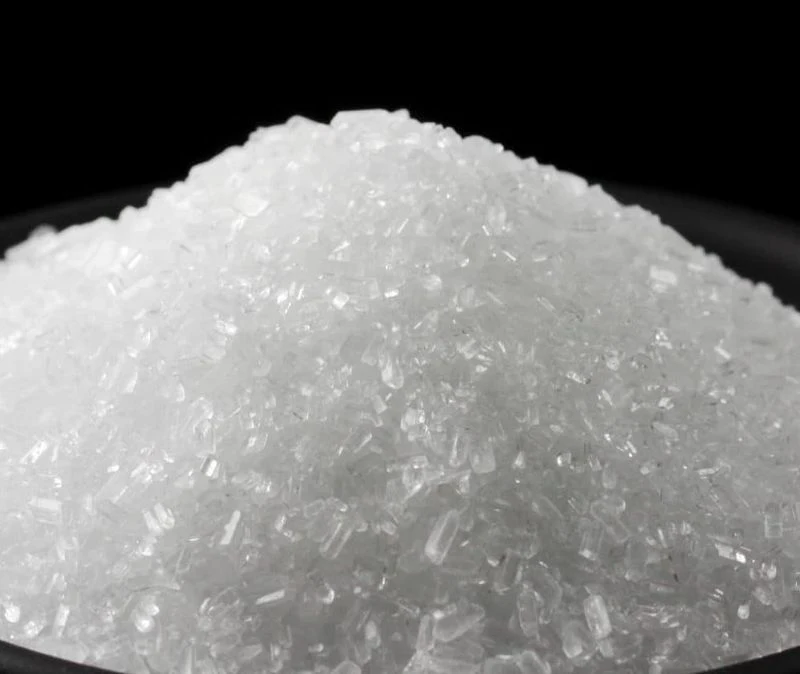
Epsom salt, a gardener’s secret, offers a magnesium and sulfur boost. Dissolve two tablespoons in a gallon of water.
Water your plants monthly to promote chlorophyll production and improve nutrient uptake. This tonic is especially helpful for tomatoes and peppers, preventing yellowing leaves.
Did you know? Epsom salt enhances seed germination and increases fruit and flower production. It’s an affordable and accessible way to enrich your garden naturally. Try this time-tested remedy and witness your plants thrive!
Vinegar Weed Killer
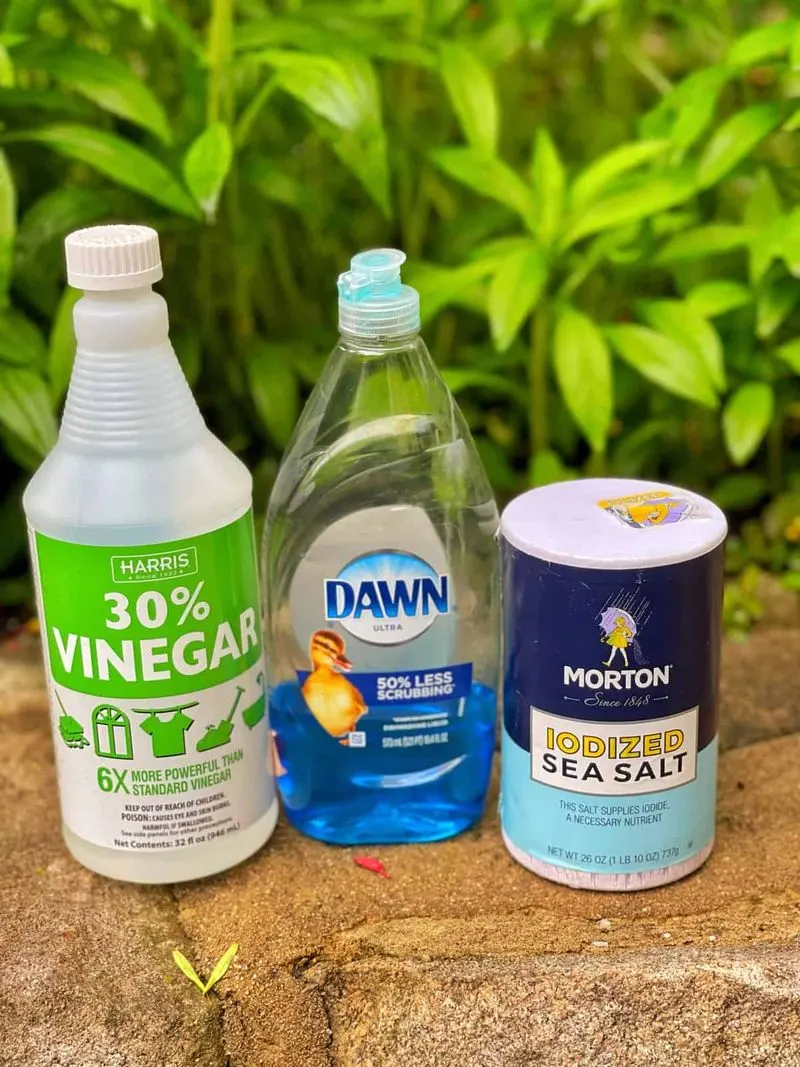
Harness vinegar’s natural acidity to control weeds. Fill a spray bottle with white vinegar, applying directly to unwanted plants.
The vinegar’s acetic acid disrupts cell membranes, effectively dehydrating weeds. Choose a sunny day for application, ensuring optimal results.
This eco-friendly alternative to chemical herbicides ensures soil health and safety for beneficial insects. Repeated application may be necessary for stubborn weeds. Embrace this simple, natural solution for maintaining a pristine garden.
Aspirin Plant Immunity
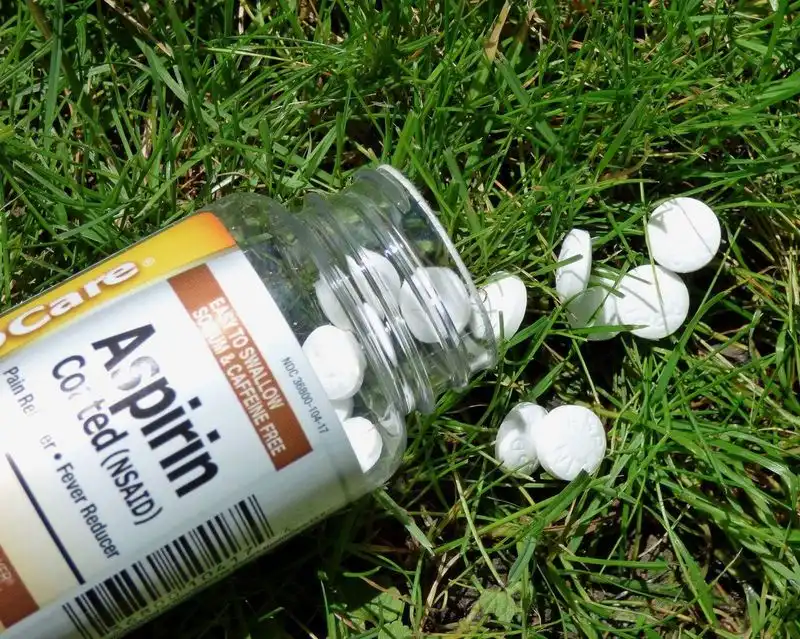
Boost plant immunity with aspirin. Dissolve one tablet in a gallon of water, spraying over plant leaves.
This mixture triggers a defense response, enhancing resistance to diseases. It’s especially effective for vegetable gardens.
Did you know? Aspirin mimics salicylic acid, a natural plant hormone. This practice, cherished by gardeners, aids in preventing fungal infections. Use this innovative tonic to fortify your plants against common garden ailments.
Milk Fungicide
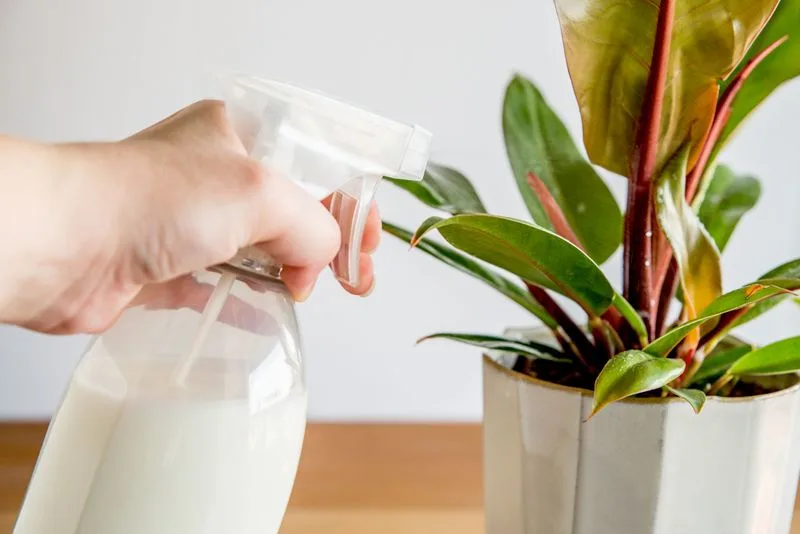
Combat fungal infections with milk. Mix one part milk to two parts water, spraying on affected areas weekly.
The proteins in milk disrupt fungal growth, providing a natural defense for your plants.
Ideal for powdery mildew on cucumbers and squash, this solution is gentle yet effective. Did you know? Milk has been used since ancient times as a natural fungicide. This remedy supports a healthy garden without relying on harsh chemicals.
Neem Oil Pest Control
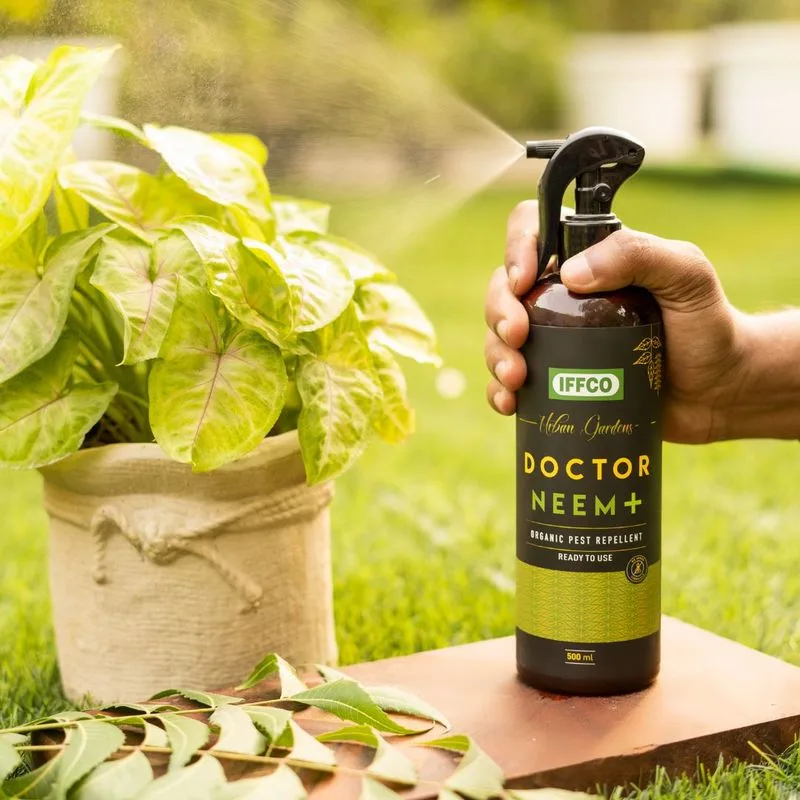
Neem oil is a powerful, natural pest deterrent. Mix one teaspoon with a quart of water, applying with a spray bottle.
This oil disrupts insect life cycles, effectively reducing populations of aphids, mites, and whiteflies.
Unlike chemical pesticides, neem oil is safe for beneficial insects and humans. This versatile tonic not only protects your plants but also supports a balanced ecosystem. Experience the benefits of this ancient gardening staple!
Compost Tea Nutrient Boost
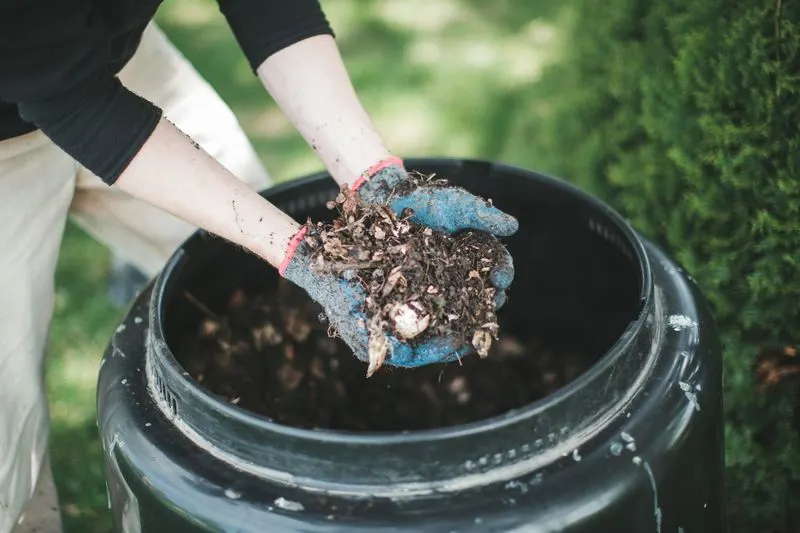
Brew rich compost tea to nourish your plants. Fill a container with compost, adding water to steep for 24 hours.
Strain and apply the liquid to plants, delivering essential nutrients and beneficial microbes.
This practice enhances soil structure and boosts plant resilience. Ideal for vegetables and flowers, compost tea promotes vigorous growth. Did you know? This age-old technique enriches gardens organically, supporting sustainable agriculture practices.
Molasses Soil Conditioner
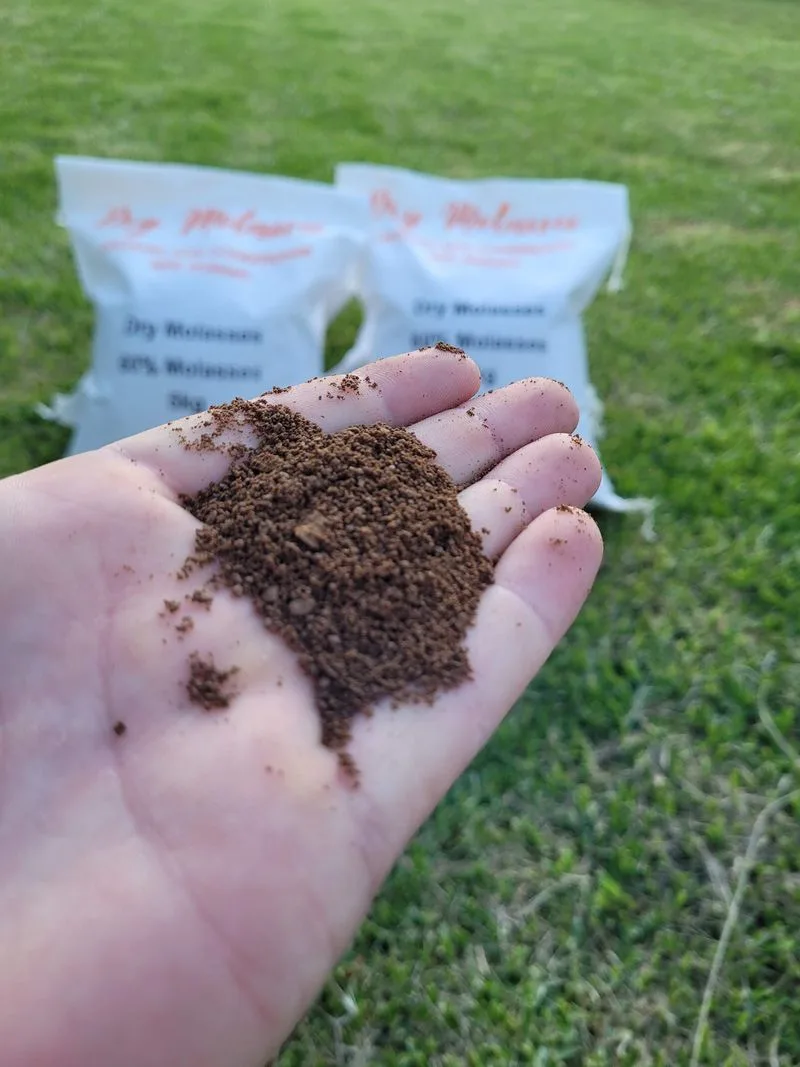
Sweeten your garden with molasses. Mix one tablespoon with a gallon of water, applying to soil monthly.
Rich in iron, calcium, and potassium, molasses feeds beneficial soil microbes and enhances nutrient absorption.
This tonic improves soil fertility and encourages healthy root development. Its natural sugars promote vigorous plant growth, supporting a thriving garden ecosystem. Embrace this delightful, natural solution for a bountiful harvest.
Green Tea Leaf Tonic
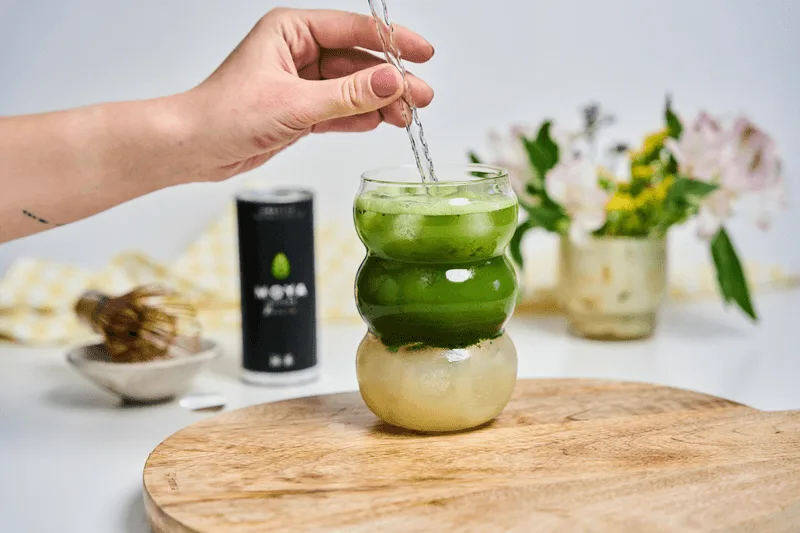
Revitalize your plants with green tea. Steep used tea leaves in water, creating a gentle, nutrient-rich tonic.
Apply this to plants to enhance color and vitality. Green tea contains antioxidants and trace minerals essential for growth.
This eco-friendly solution offers a unique way to reuse kitchen waste while benefiting your garden. Ideal for houseplants, it promotes lush foliage. Discover the refreshing benefits of this aromatic garden brew!
Garlic Infusion Pest Repellent
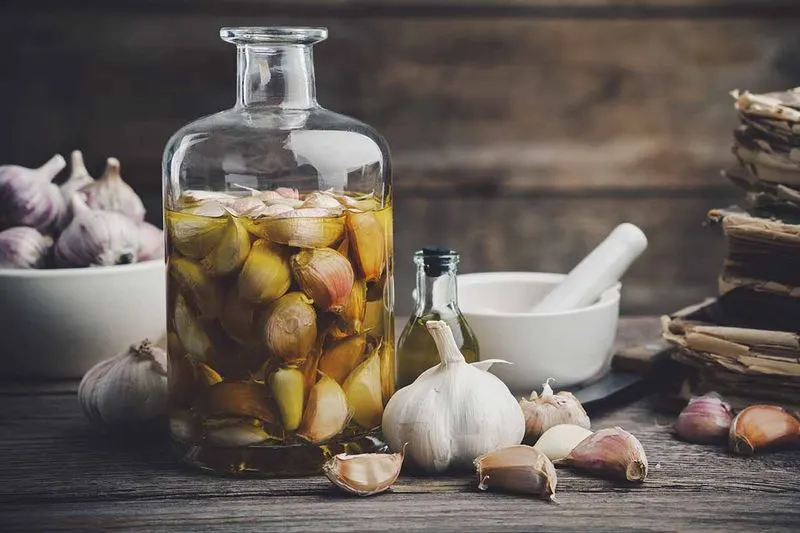
Ward off pests with garlic. Crush several cloves, steeping them in water for 24 hours.
Strain and spray this potent mixture onto plants to repel insects like aphids and beetles. Garlic’s strong aroma acts as a natural deterrent.
This organic remedy not only protects plants but also enriches the garden environment. Embrace this time-honored tradition for maintaining a pest-free sanctuary. Did you know? Garlic has been used in gardens for centuries for its protective qualities.
Baking Soda Mildew Treatment
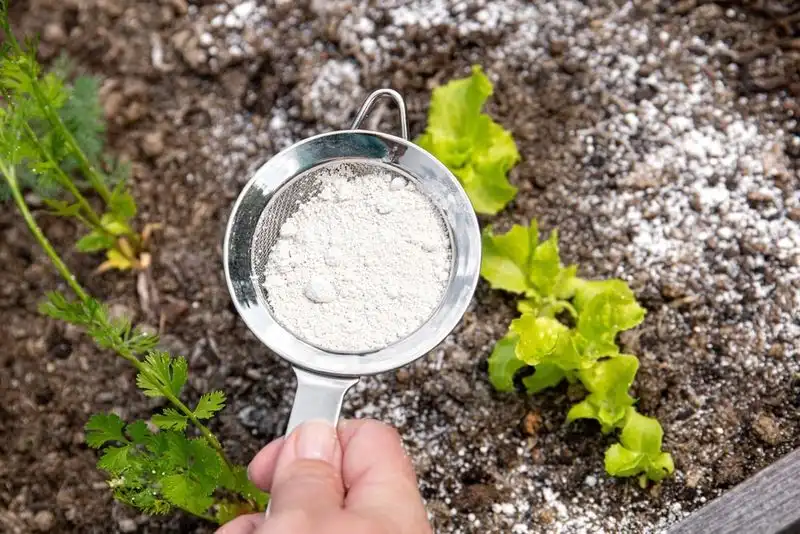
Baking soda offers a natural solution for mildew. Mix one tablespoon with a gallon of water, spraying on affected plants weekly.
This treatment alters the pH level on leaf surfaces, creating an inhospitable environment for fungal growth.
Ideal for mildew-prone plants, this remedy is safe and easy to use. Embrace this simple, effective method for maintaining plant health. Did you know? Baking soda is a versatile household item with numerous gardening applications.
Aloe Vera Growth Stimulator
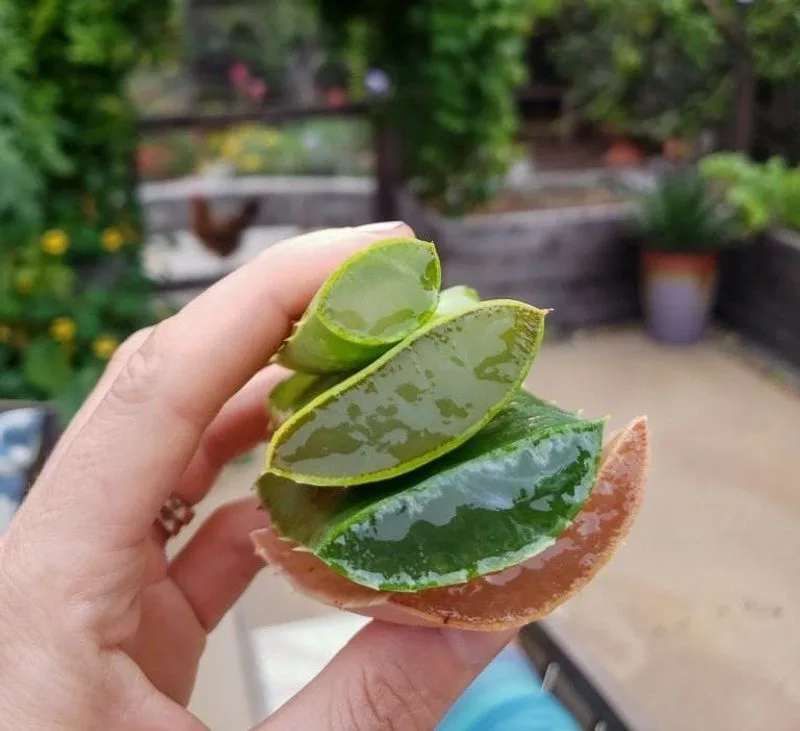
Aloe vera, a natural growth booster, is perfect for nurturing young plants. Extract gel from fresh aloe leaves, blending with water.
Apply to seedlings to promote root development and enhance resilience.
Rich in vitamins and enzymes, aloe vera supports healthy growth and improves plant vitality. This soothing tonic is ideal for both indoor and outdoor plants. Discover the nurturing benefits of this ancient botanical remedy!

